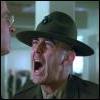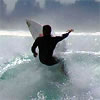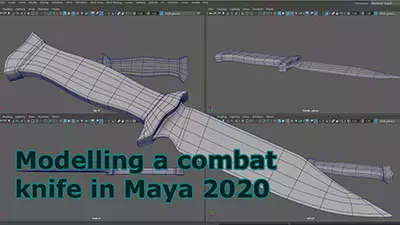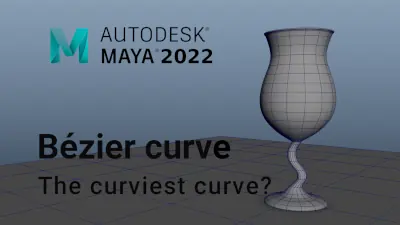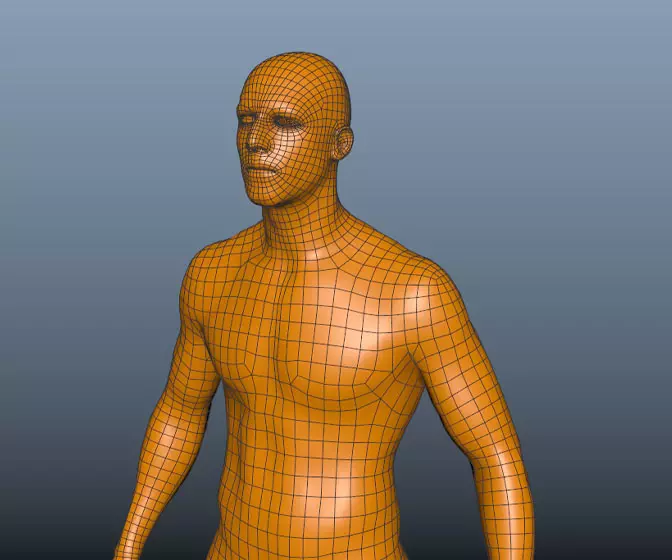Substance Painter
In this start to finish texturing project within Substance Painter we cover all the techniques you need to texture the robot character.
#
1
16-02-2004
, 02:52 PM
Registered User
Join Date: Dec 2003
Join Date: Dec 2003
Location: Bracknell,Berkshire, UK
Posts: 9
Rendering Basics
Well I ve spent countless nights pulling my hair out! My first Maya piece is completed apart from the rendering. I would like to achieve a render similar to chrome or brushed steel, I have designed a PDA and have messed around with basic rendering but to be honest with you all, I havent got a clue what im doing. Can anyone help me out with this?
All help appreciated, you never know, you may save my relationship also.
John
#
2
16-02-2004
, 04:36 PM
You can find these in the communities section of their site: www.alias.com
If you are using windows, you can download the shaders and extract them to a folder on your hard disk. Then, with Maya open, just drag the shader filr (<shader name>.ma) into your Hypershade window and, after a few seconds, it will appear there.
That'll do donkey... that'll do...
#
3
16-02-2004
, 04:46 PM
Registered User
Join Date: Dec 2003
Join Date: Dec 2003
Location: Bracknell,Berkshire, UK
Posts: 9
Ive got that far, got a few from a site and had a play, they look good on the website but when I try, their crap! its as though im missing something in the set up, the final render looks flat and nothing like the exaple given. Does lighting play a major role? Im just using default lighting at the mo, does this have an effect on the final render?
#
4
16-02-2004
, 06:08 PM
To get half-decent renders (as thats what most of mine are - only half-decent), you need to have an understanding of the lighting, the shaders, and the rendering setup.
Have a look at Kevins free spotlight tutorial. Then buy a few points and download Mikes 3 Point Lighting tutorial.
This will get you started. When you get as far as you think you can go, post some of your images in the WIP forum and the real gurus here will do their best to help you out.
That'll do donkey... that'll do...
Last edited by rich; 16-02-2004 at 06:17 PM.
#
5
16-02-2004
, 08:01 PM
"Terminat Bora Diem, Terminal Auctor opus."
#
6
17-02-2004
, 08:48 AM
Registered User
Join Date: Dec 2003
Join Date: Dec 2003
Location: Bracknell,Berkshire, UK
Posts: 9
Got me going now :)
One more thing, if you have time?
Why do people create a sphere or a dome over the top to encapsulate the model, what is the purpose of this?(bear with me, ive only been doing this for about a month)
Probably another stupid question, or not.
Thanks again
John
#
7
17-02-2004
, 01:22 PM
Global Illumination (GI) occurs when the light falling on any object in your scene is correctly calculated from the contribution of light from the other objects in the scene.
HDRI (high dynamic radioscity image) refers to a particular form of image that has a much larger range of luminance information contained than a standard computer bitmap file. Typically, they are used as reflection or background maps from which lighting information is calculated beacuase they contain a huge amount of lighting information.
These are fairly advanced topics and ones I am just beginning to learn myself as you can see from the test images that I rendered this morning:
Link to rendering test images
The images are as follows:
Top Left: Maya Software renderer using default lights and no additional lights.
Top Right: The same scene rendered with a single white spotlight with a shadow setting of 512
Middle Left: I switched to Mental Ray, deleted the spotlight and rendered with default lighting.
Middle Right: Still in Mental Ray, but now with Final Gather turned on; 1000 rays, and min/max radius values of 0.1 and 1 respectively. Note the effect of global illumination - the green, red, and blue colors bleed into the surface plane.
Bottom: HDRI render using a hemisphere to contain the scene (not visible) onto which a lambert shader is applied. The lambert shader then has it's ambient color and color inputs mapped to the HDRI image and I have the doubled the luminosity of the color channel. The checkered plane has been replaced with a non-reflective white and the Final Gather values are 2000 rays, min-max radiuses of .8 and 8 respectively.
In terms of render times, the Maya Software renders took a few seconds, the Mental Ray default took about 15 seconds. Final Gather of 1000 rays bumps this up to about 35 seconds, and the HDRI render came in at a whopping 2 minutes (on a P4-1,5Ghz, 512kb RAM, HP laptop).
In case you're wondering - I was bored at work this morning!

That'll do donkey... that'll do...
#
8
17-02-2004
, 04:03 PM
Registered User
Join Date: Dec 2003
Join Date: Dec 2003
Location: Bracknell,Berkshire, UK
Posts: 9
These look ace, the mental ray really works I feel like touching it.
Bit jagged on taurus, is that something to do with the global render settings?
found this on the web, not sure if its any good for what I want to achieve, but you might want it (I got along way to go yet)
Thanks again Huxley, I really appreciate the time and the effort.
John.
https://www.debevec.org/HDRShop/
https://www.debevec.org/Probes/
#
9
17-02-2004
, 05:05 PM
Originally posted by graphictart
Yikes, Im not worthy...................................
These look ace, the mental ray really works I feel like touching it.
Bit jagged on taurus, is that something to do with the global render settings?
found this on the web, not sure if its any good for what I want to achieve, but you might want it (I got along way to go yet)
Thanks again Huxley, I really appreciate the time and the effort.
John.
https://www.debevec.org/HDRShop/
https://www.debevec.org/Probes/
I always enjoy an opportunity to try out the stuff I've learned! You're right, the Torus is a little "bumpy", this is because I forgot to smooth it before rendering.
IMO, Mental Ray is a much better renderer than the Maya Software renderer and I'm only slowly beginning to get the hang of it.
Here's a good example of what can done with Maya and Mental Ray:
That'll do donkey... that'll do...
#
10
19-02-2004
, 01:42 AM

The link to the tut is:
MR_FG_QUICKDEMO.ZIP
The 6.27MB ZIP file contains:
(1) The TSCC codec that you will need to install before you can watch the video.
(2) The TSCC encoded AVI file.
Sorry it's so large but I didn't add sound so I tended to linger a little on each click of the mouse so you could see what is going on.
_____________________________
A quick note: I hope that the mods and everyone at SM dont mind me posting my homemade video tutorial. I purposefully branded it with "Originally posted at SimplyMaya.Com" so that anyone who sees it will know that where it came from but that it is not an official SM product. If there is a Mental Ray/FG vid in the works or you'd just rather that I didn't post this, please let me know ASAP and I will take down the link
That'll do donkey... that'll do...
#
11
19-02-2004
, 02:05 AM
that was a good tutorial...thanks a lot.. it thought me a few things about rendering!!!
-Emo
#
12
27-02-2004
, 09:01 AM
Hardware Specs
Rich, what are your hardware specs?!!! And is that within the average mortal's budget? :p It just chewed up those renders like baby food.
That was... Amazing!
Thanks,
Luc
#
13
27-02-2004
, 09:35 AM

That'll do donkey... that'll do...
#
14
25-05-2004
, 12:40 AM
The images and the zip file dont appear to be available to view or download.
Are they still there
Ta!
<font size=3 face=arial color=blue>S U R F E R M C D </font><br>
<font size=2 face=arial color=blue>www.winteractiv.com</font>
#
15
02-06-2004
, 03:20 AM
Posting Rules Forum Rules
Similar Threads
Batch Render not rendering...
by Miralina in forum Maya Technical Issues replies 1 on 04-04-2014
Extremely confused, Batch rendering issue!
by mouseyflash in forum Lighting & Rendering replies 0 on 04-04-2013
Why doesn't Mental Ray have .avi available for batch rendering?
by SilverFeather in forum Maya Basics & Newbie Lounge replies 42 on 07-12-2011
Why Maya?
by haka in forum Maya Basics & Newbie Lounge replies 21 on 10-11-2007
Batch rendering seems to repeat itself
by alienscience in forum Maya Basics & Newbie Lounge replies 7 on 01-02-2005
Topics
Free Courses
Full Courses
VFX News
How computer animation was used 30 years ago to make a Roger Rabbit short
On 2022-07-18 14:30:13
Sneak peek at Houdini 19.5
On 2022-07-18 14:17:59
VFX Breakdown The Man Who Fell To Earth
On 2022-07-15 13:14:36
Resident Evil - Teaser Trailer
On 2022-05-13 13:52:25
New cloud modeling nodes for Bifrost
On 2022-05-02 20:24:13
MPC Showreel 2022
On 2022-04-13 16:02:13
